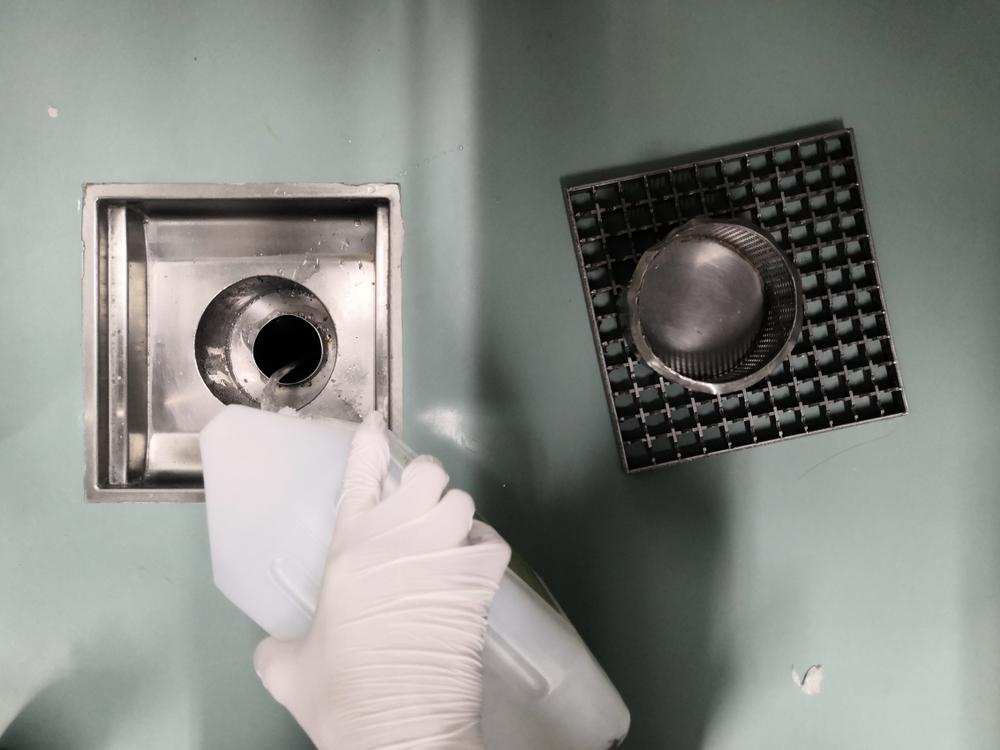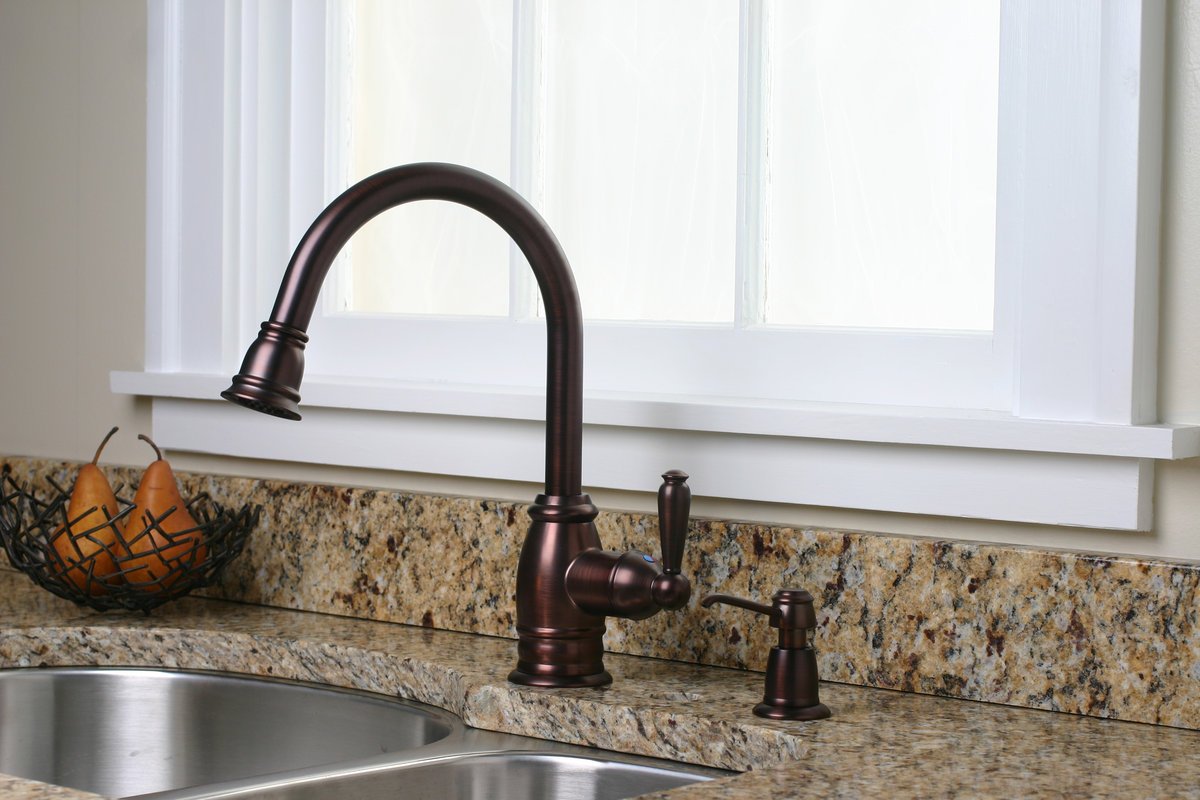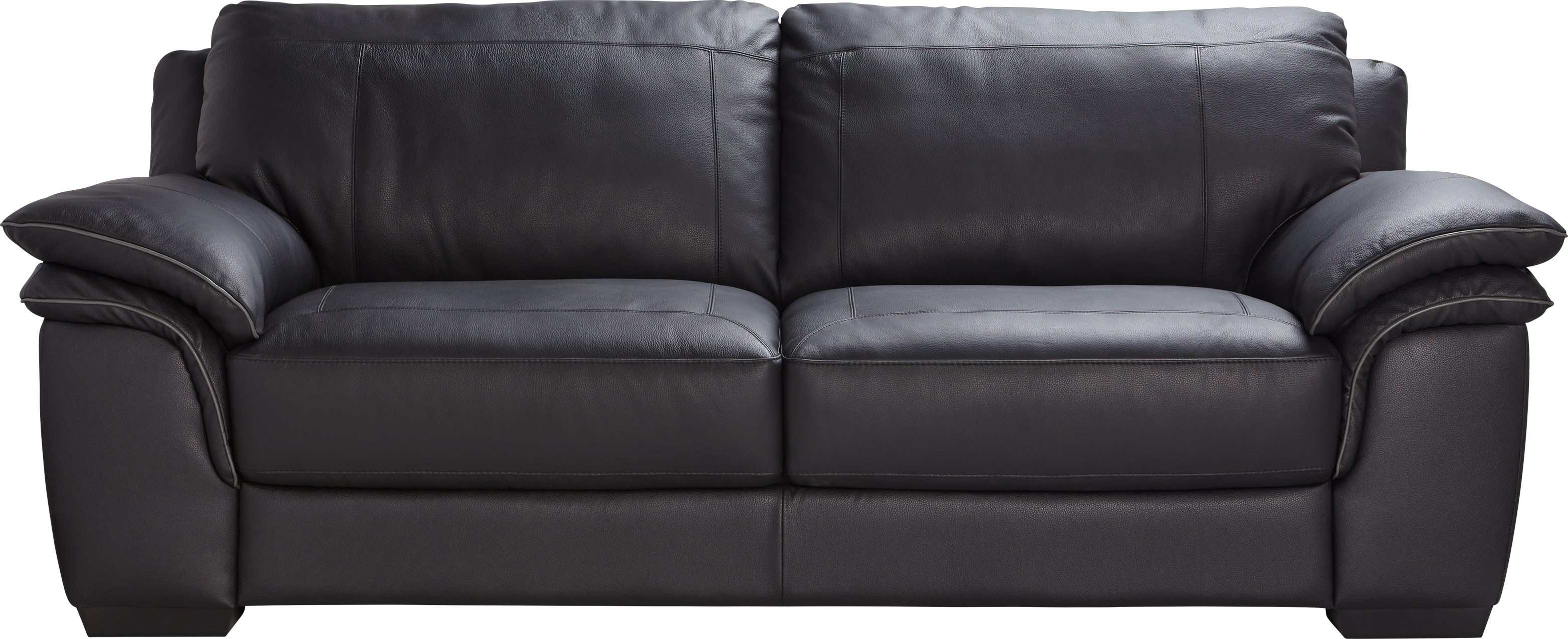Dealing with a clogged kitchen sink can be a major inconvenience. Not only does it make it difficult to use the sink for washing dishes or preparing food, but it can also lead to unpleasant odors and potential plumbing issues if left unaddressed. Luckily, there are several effective ways to unclog a kitchen sink and get it running smoothly again. In this article, we'll discuss the top 10 methods for unclogging a kitchen sink and provide some helpful tips for preventing clogs in the future.Unclog a Kitchen Sink
Before we dive into the various methods for unclogging a kitchen sink, it's important to understand how to properly unclog a drain. The first step is to gather some basic supplies, including a plunger, a drain snake, and a pair of rubber gloves. You may also want to have some baking soda, vinegar, and hot water on hand for some DIY solutions.How to Unclog a Kitchen Sink Drain
If you're dealing with a minor clog, there are a few simple and natural solutions you can try before resorting to chemical drain cleaners. One popular method is to pour a pot of boiling water down the drain, followed by 1/2 cup of baking soda. Let it sit for a few minutes, then pour a mixture of 1 cup of vinegar and 1 cup of hot water down the drain. Cover the drain with a plug or cloth for about 10 minutes, then flush it with another pot of boiling water.DIY Kitchen Sink Clog Solutions
If the DIY solutions don't work, it's time to break out the plunger. Make sure there is enough water in the sink to cover the bottom of the plunger, then place it over the drain and vigorously plunge up and down for about a minute. This should help loosen and dislodge the clog. If the plunger doesn't work, you may need to use a drain snake to physically remove the blockage.Clearing a Clogged Kitchen Sink
If you're dealing with a stubborn clog that won't budge, you may need to use a chemical drain cleaner. Look for a product specifically designed for kitchen sinks and follow the instructions carefully. Keep in mind that these cleaners can be harsh and may damage your pipes if used too frequently, so use them sparingly.Fixing a Clogged Kitchen Sink
In addition to the methods mentioned above, there are a few other remedies you can try for a clogged kitchen sink. One is to use a wet/dry vacuum to suction out the clog. Another is to use a mixture of equal parts salt, baking soda, and cream of tartar. Pour the mixture down the drain, followed by boiling water.Kitchen Sink Clog Remedy
Now that you've successfully unclogged your kitchen sink, it's important to take some preventative measures to avoid future clogs. One of the best ways to do this is to regularly clean the sink and drain with hot water and dish soap. This will help remove any built-up residue that can contribute to clogs. You can also use a drain strainer to catch food scraps and other debris before they go down the drain.Preventing Kitchen Sink Clogs
In addition to regular cleaning and using a drain strainer, there are a few other ways to prevent kitchen sink clogs. Avoid pouring grease and oil down the drain, as they can solidify and cause clogs. Also, be careful about what you put in the garbage disposal, as items like fibrous vegetables, coffee grounds, and eggshells can cause clogs. Lastly, avoid using chemical drain cleaners too frequently, as they can corrode your pipes over time.Kitchen Sink Clog Prevention Tips
As mentioned earlier, a plunger can be a highly effective tool for unclogging a kitchen sink. However, it's important to use the right kind of plunger. A cup plunger, which has a flat bottom, is best suited for sinks. A flange plunger, which has an added piece for better suction, is better for toilets. Place the plunger over the drain and make sure there is enough water in the sink to cover the bottom. Then, push down and pull up vigorously for about a minute.Using a Plunger to Unclog a Kitchen Sink
If the plunger and other DIY methods don't work, it may be time to use a chemical drain cleaner. These products use strong chemicals to dissolve and break up clogs. However, they can also be harmful to your pipes and should be used sparingly. If you do use a chemical drain cleaner, make sure to follow the instructions carefully and take proper safety precautions.Chemical Drain Cleaners for Kitchen Sink Clogs
How to Troubleshoot a Clogged Kitchen Sink and Keep Your House Design Functional

Understanding the Problem
 Kitchen sink clogged up
is a common issue that homeowners encounter in their daily lives. It not only disrupts the flow of water and makes it difficult to wash dishes, but it can also create unpleasant odors and breeding grounds for bacteria. In addition, a clogged kitchen sink can also affect the overall
house design
and functionality of your kitchen. Therefore, it is important to understand the root cause of the problem and take necessary steps to resolve it.
Kitchen sink clogged up
is a common issue that homeowners encounter in their daily lives. It not only disrupts the flow of water and makes it difficult to wash dishes, but it can also create unpleasant odors and breeding grounds for bacteria. In addition, a clogged kitchen sink can also affect the overall
house design
and functionality of your kitchen. Therefore, it is important to understand the root cause of the problem and take necessary steps to resolve it.
Common Causes of a Clogged Kitchen Sink
 There are several reasons why your kitchen sink may become clogged. The most common culprit is food particles, grease, and oil that get stuck in the drain pipes over time. These substances can build up and create a blockage, making it difficult for water to pass through. Another cause could be foreign objects such as utensils or small toys accidentally falling into the sink and getting lodged in the pipes. Additionally, old and corroded pipes can collapse or become misaligned, causing blockages in the system.
There are several reasons why your kitchen sink may become clogged. The most common culprit is food particles, grease, and oil that get stuck in the drain pipes over time. These substances can build up and create a blockage, making it difficult for water to pass through. Another cause could be foreign objects such as utensils or small toys accidentally falling into the sink and getting lodged in the pipes. Additionally, old and corroded pipes can collapse or become misaligned, causing blockages in the system.
Steps to Clear a Clogged Kitchen Sink
 Step 1:
Start by using a plunger to try and dislodge the blockage. Cover the sink overflow with a damp cloth and use the plunger to create a vacuum over the drain. Pump up and down several times, then remove the plunger and check if the water is draining.
Step 2:
If the plunger doesn't work, try using a plumbing snake. Insert the snake into the drain and rotate it while pushing it in and out. This will help to break up the blockage and clear the pipes.
Step 3:
If the snake doesn't work either, you may need to remove the P trap under the sink. Place a bucket under the P trap to catch any water and unscrew the connections. Clean out any debris and reattach the P trap.
Step 4:
If none of the above methods work, it may be time to call a professional plumber. They have the necessary tools and expertise to clear even the most stubborn clogs.
Step 1:
Start by using a plunger to try and dislodge the blockage. Cover the sink overflow with a damp cloth and use the plunger to create a vacuum over the drain. Pump up and down several times, then remove the plunger and check if the water is draining.
Step 2:
If the plunger doesn't work, try using a plumbing snake. Insert the snake into the drain and rotate it while pushing it in and out. This will help to break up the blockage and clear the pipes.
Step 3:
If the snake doesn't work either, you may need to remove the P trap under the sink. Place a bucket under the P trap to catch any water and unscrew the connections. Clean out any debris and reattach the P trap.
Step 4:
If none of the above methods work, it may be time to call a professional plumber. They have the necessary tools and expertise to clear even the most stubborn clogs.
Preventing Future Clogs
 To avoid dealing with a clogged kitchen sink in the future, it's important to take preventative measures. Avoid pouring grease, oil, and food scraps down the drain. Install a drain cover to catch any large particles and clean it regularly. You can also use natural drain cleaning solutions, such as a mixture of baking soda and vinegar, on a monthly basis to keep your pipes clear.
In conclusion, a clogged kitchen sink can be a frustrating and disruptive issue for any homeowner. By understanding the common causes and taking necessary steps to clear and prevent clogs, you can keep your kitchen sink and overall house design functioning properly. Remember to consult a professional if the clog persists or if you're unsure about how to handle the issue.
To avoid dealing with a clogged kitchen sink in the future, it's important to take preventative measures. Avoid pouring grease, oil, and food scraps down the drain. Install a drain cover to catch any large particles and clean it regularly. You can also use natural drain cleaning solutions, such as a mixture of baking soda and vinegar, on a monthly basis to keep your pipes clear.
In conclusion, a clogged kitchen sink can be a frustrating and disruptive issue for any homeowner. By understanding the common causes and taking necessary steps to clear and prevent clogs, you can keep your kitchen sink and overall house design functioning properly. Remember to consult a professional if the clog persists or if you're unsure about how to handle the issue.
/plumber-unclogging-kitchen-sink-169270382-5797a9355f9b58461f27f024.jpg)






:max_bytes(150000):strip_icc()/how-to-unclog-a-kitchen-sink-2718799_sketch_FINAL-8c5caa805a69493ab22dfb537c72a1b7.png)







:max_bytes(150000):strip_icc()/freshen-and-unclog-drain-with-baking-soda-1900466-22-bbf940b70afa4d5abef0c54da23b1d3f.jpg)
















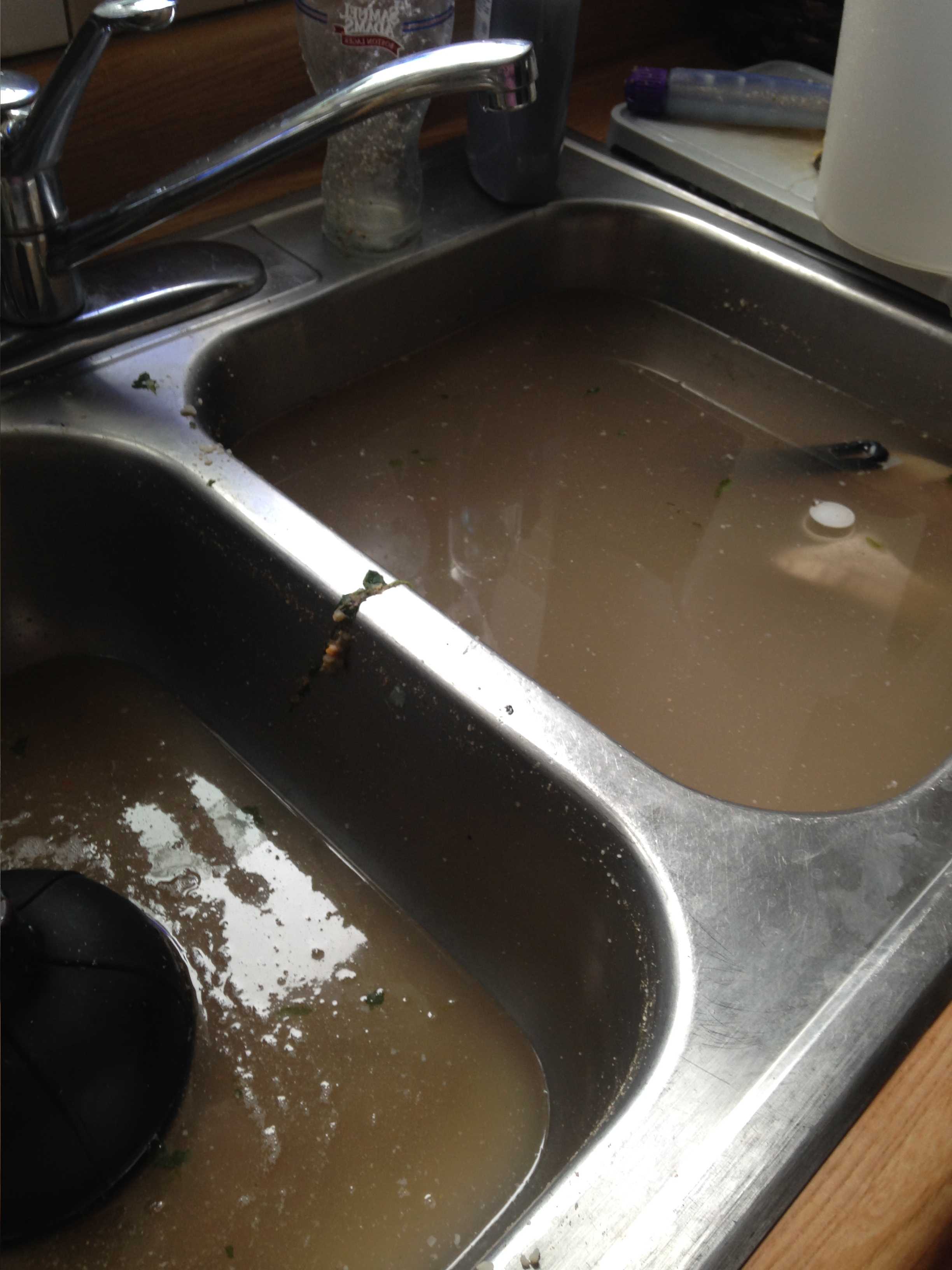


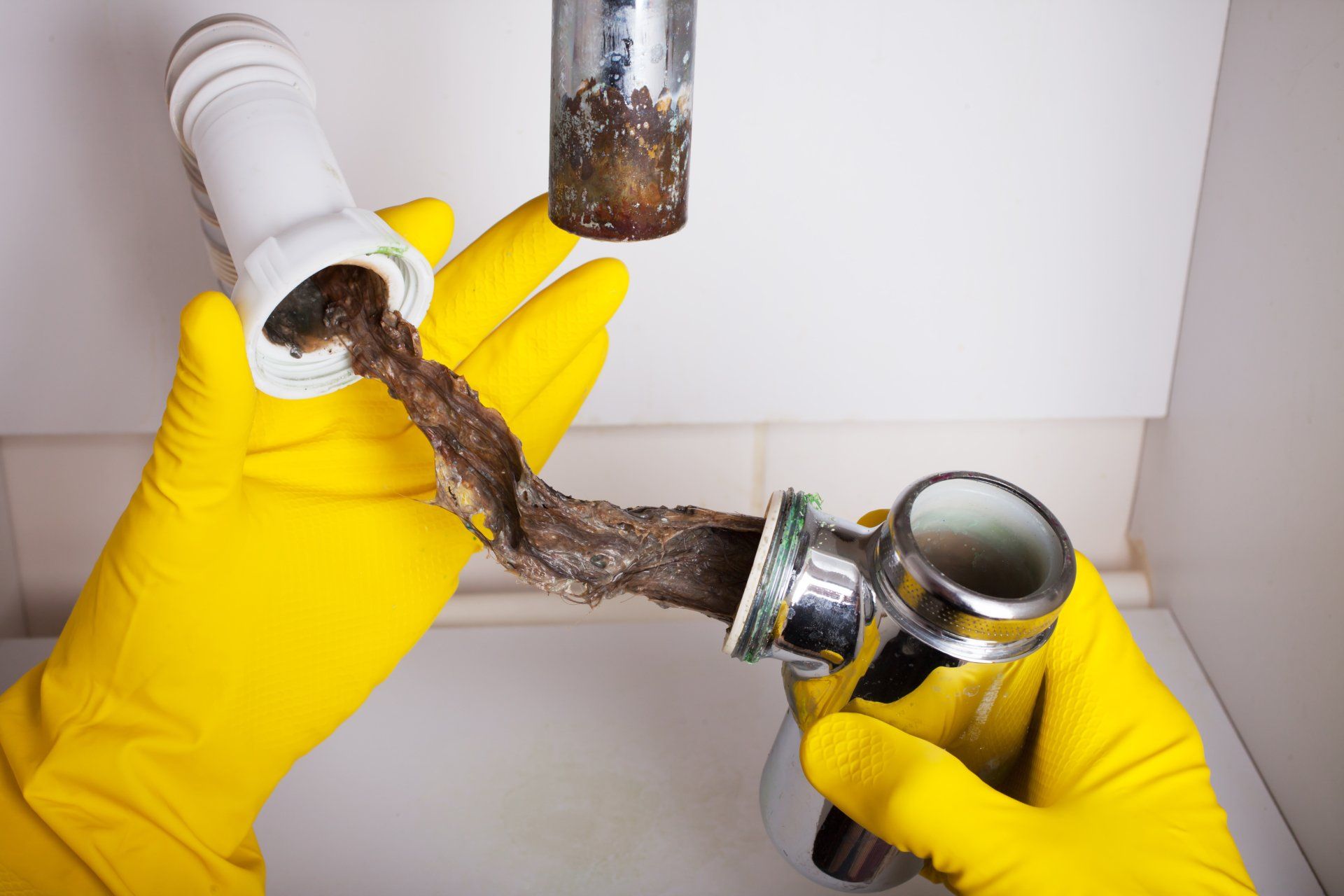
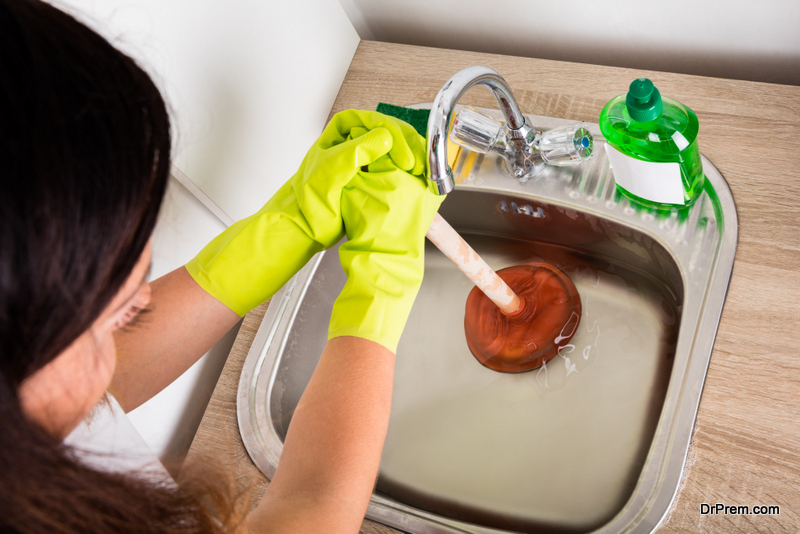
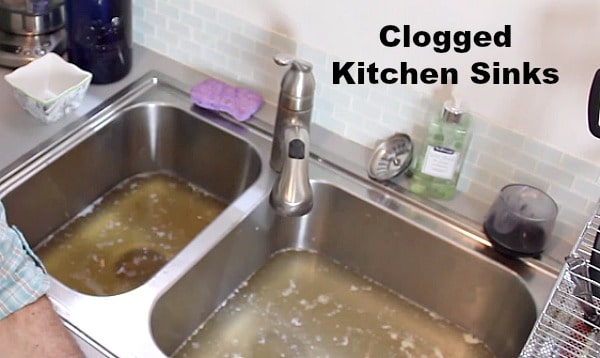


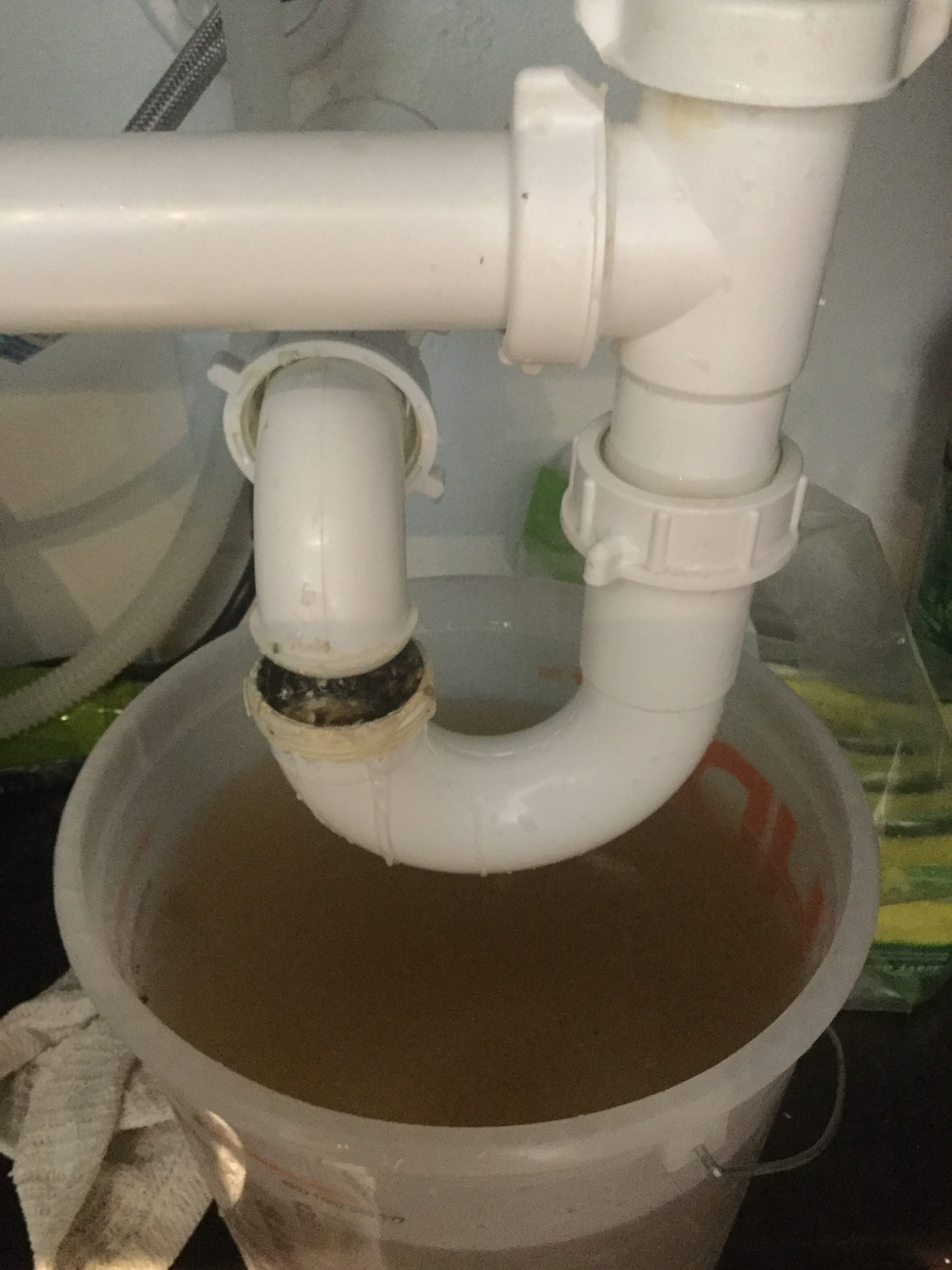







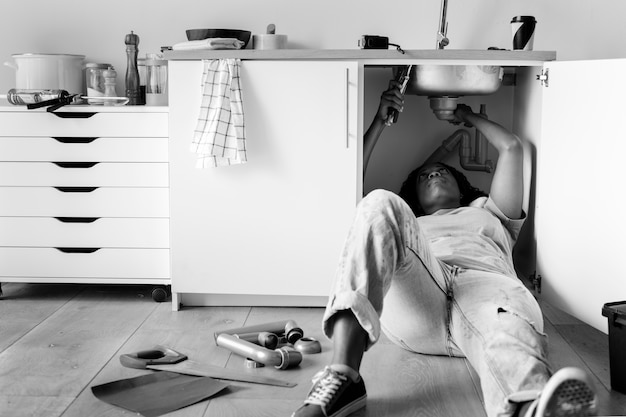




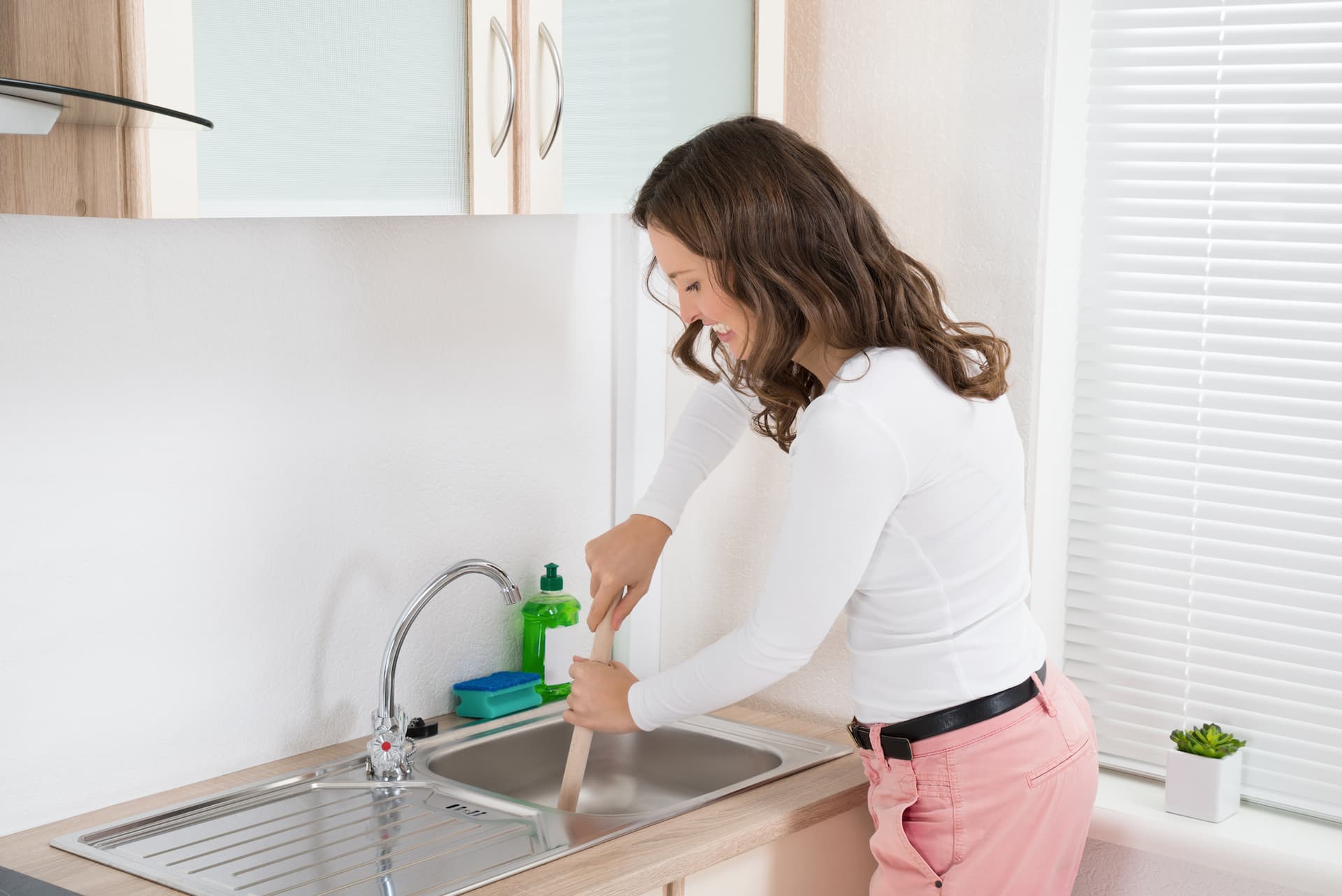

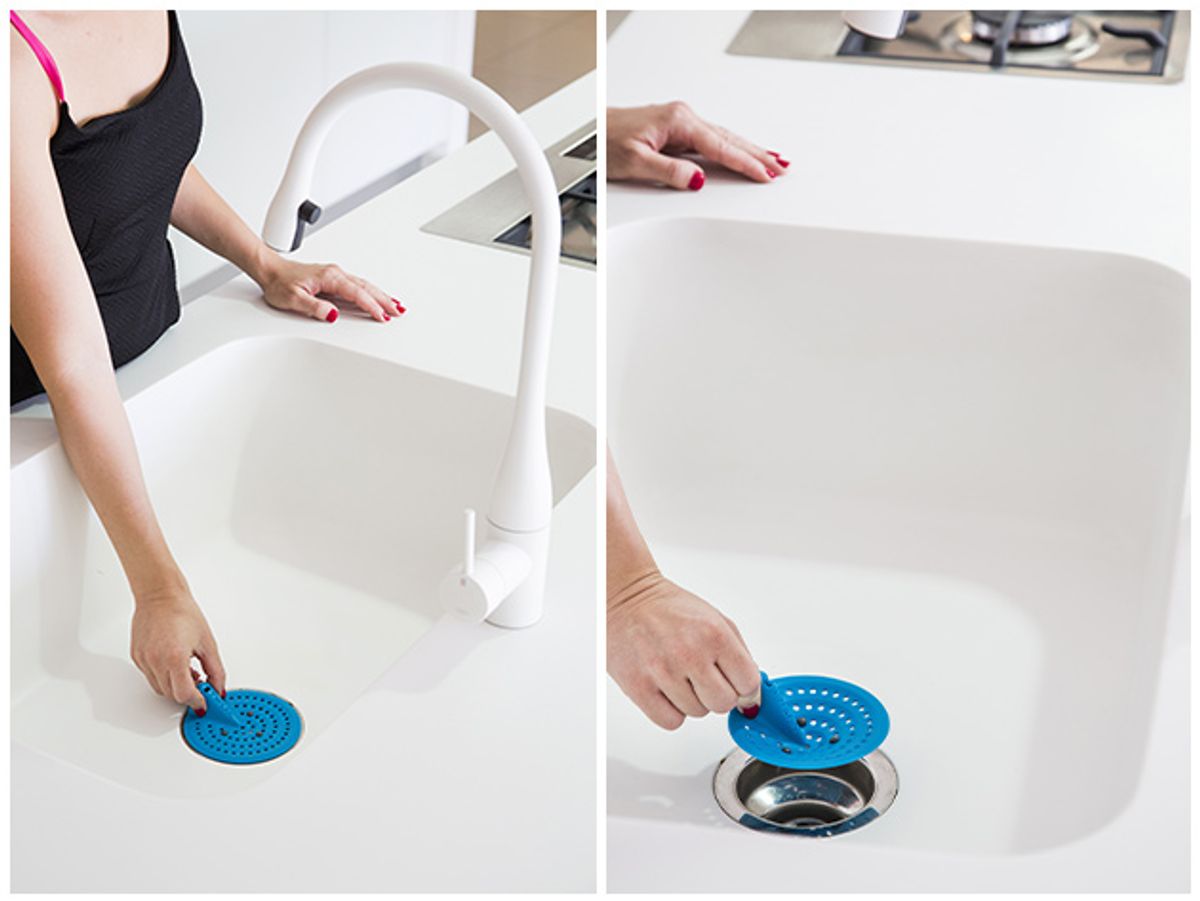


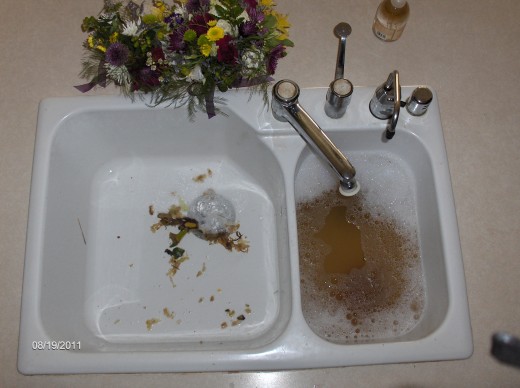
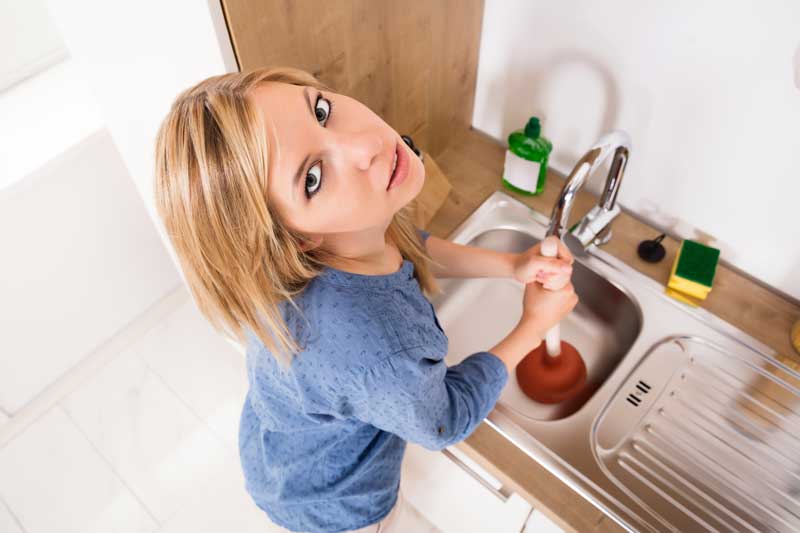







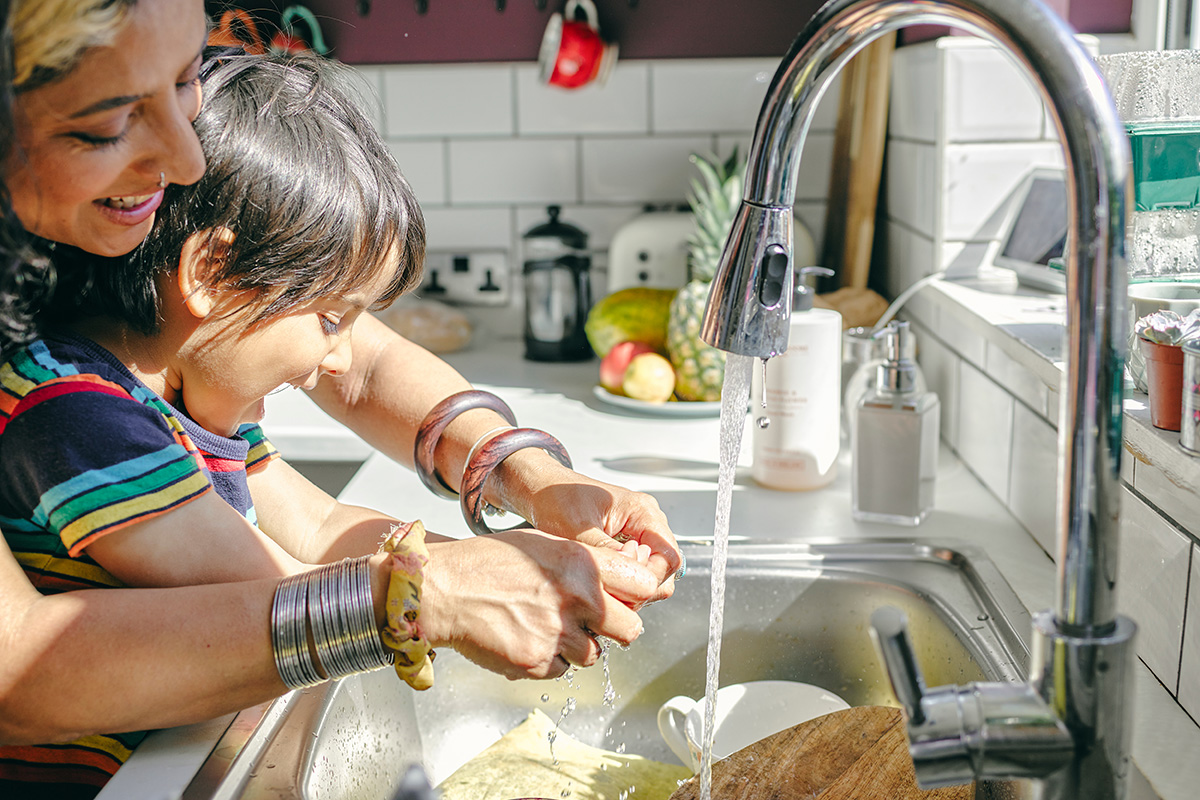
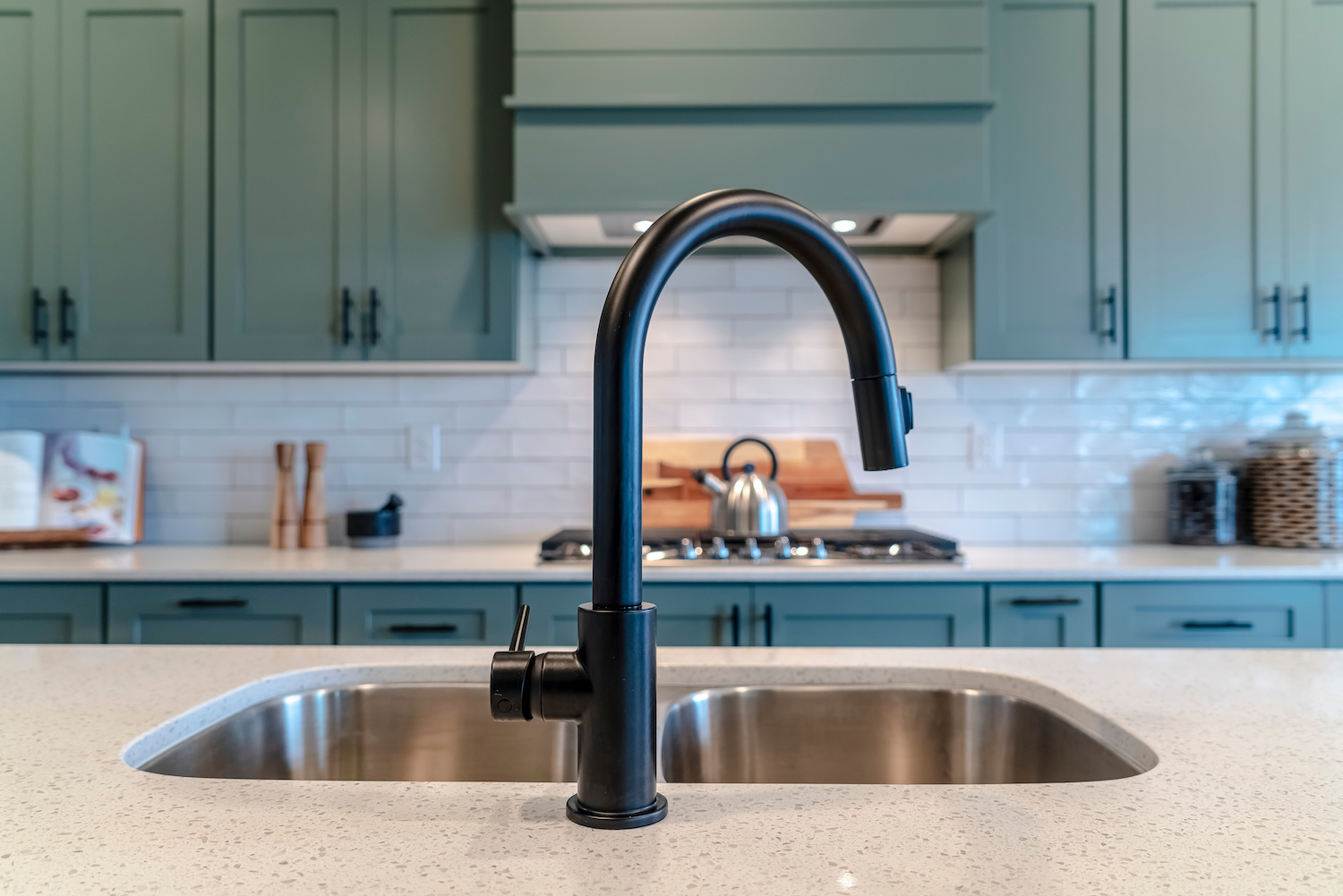
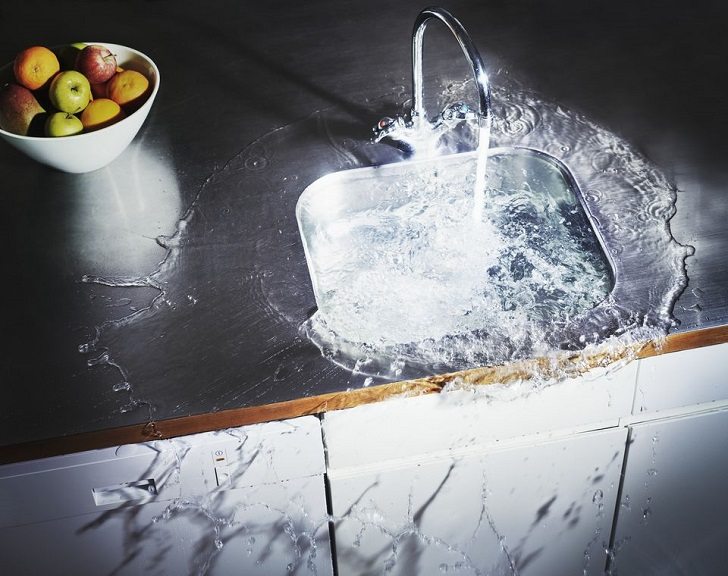




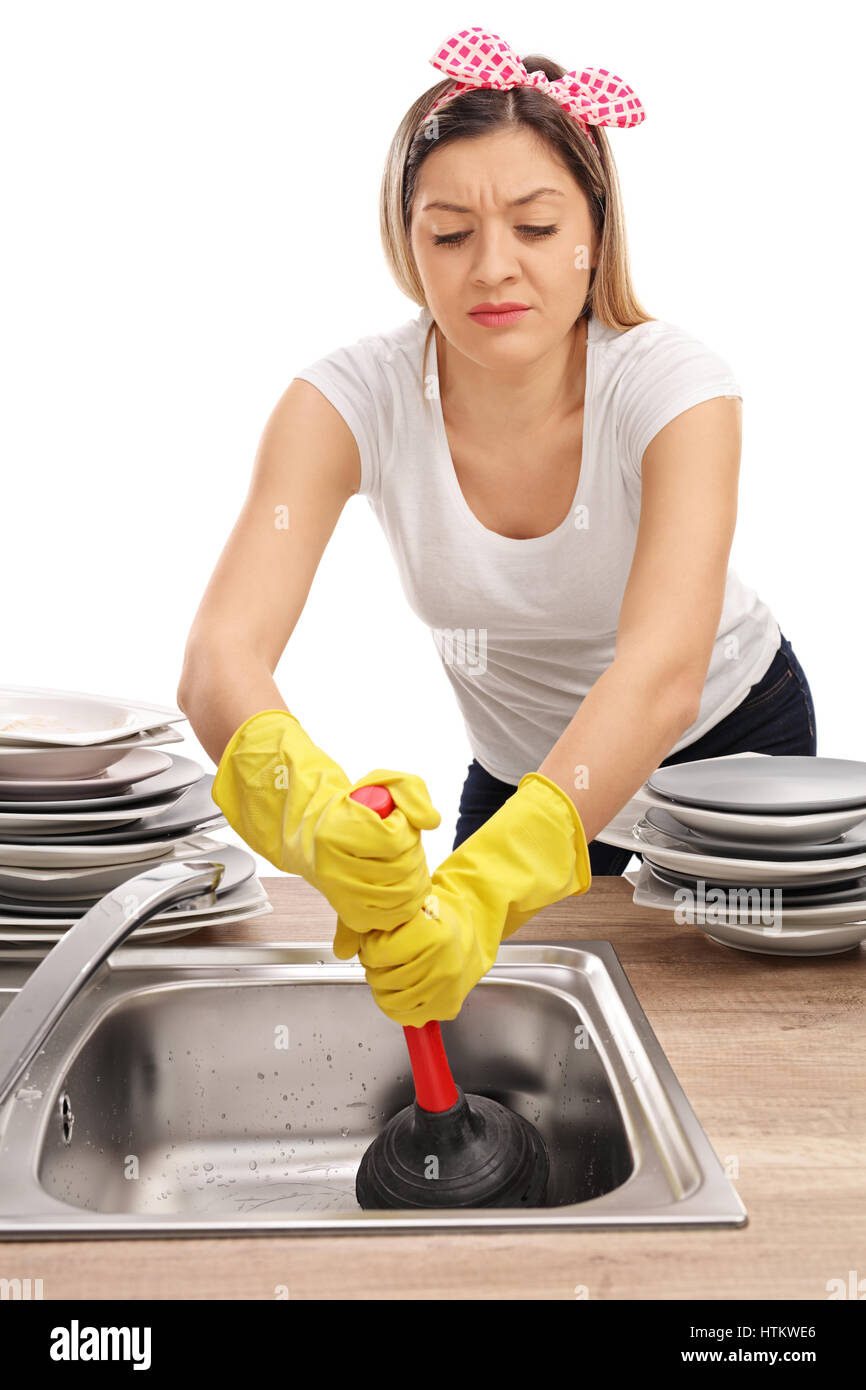


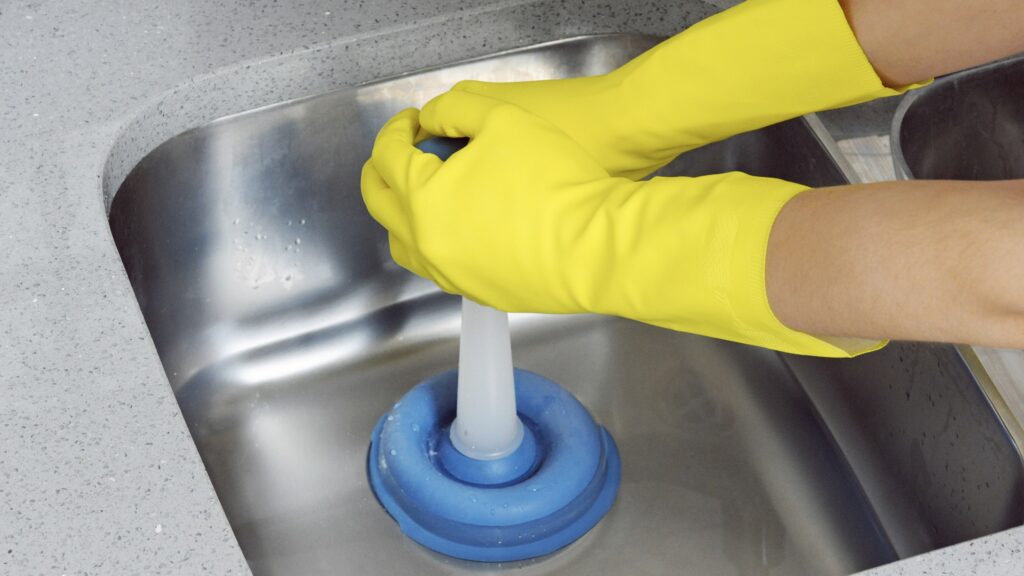
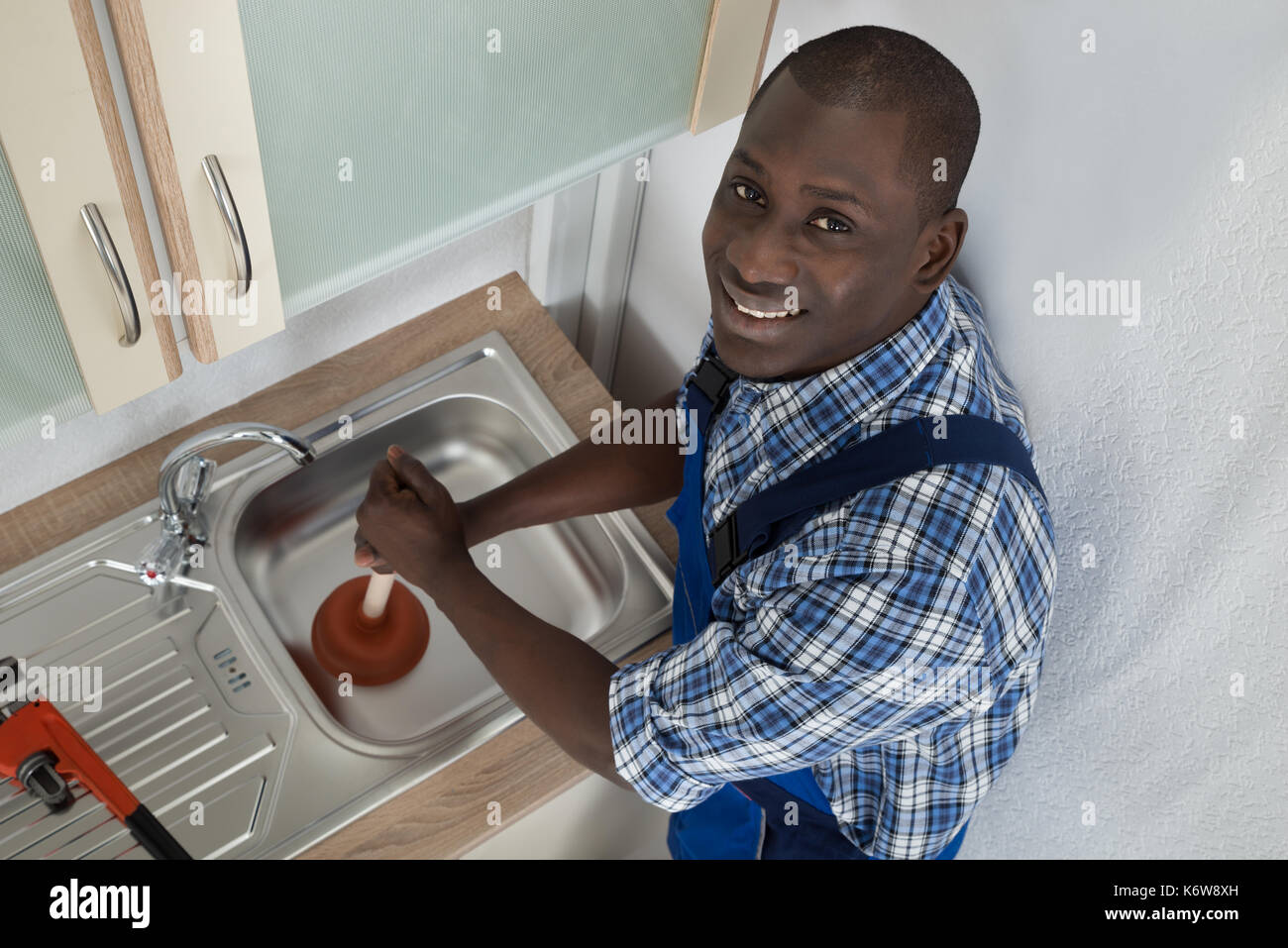





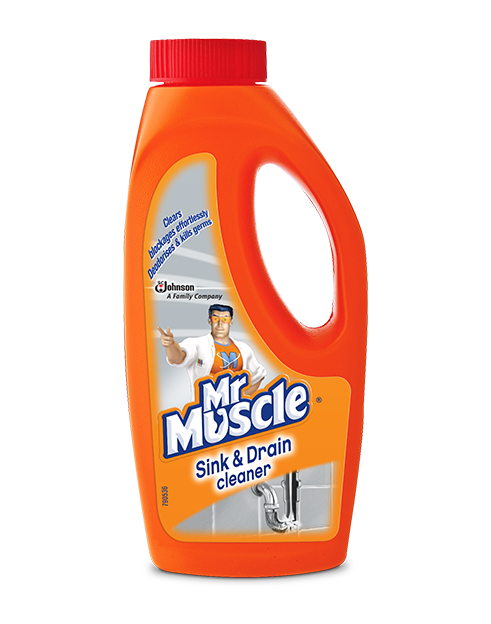



.jpg)



